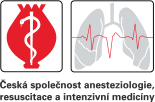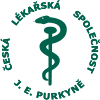Anesteziologie a intenzivní medicína, 2009 (vol. 20), issue 5
Krevní transfuze - rizika versus benefitEditorial
Ivan Novák
Anest. intenziv. Med. 2009;20(5):231-232 
Stáří transfuzních jednotek - problém k zamyšleníEditorial
Antonín Jabor
Anest. intenziv. Med. 2009;20(5):232-233 
Jaká je optimální intenzita mimotělních hemoeliminačních metod u akutního poškození ledvin kriticky nemocných?Editorial
Matějovič M., Sýkora R., Chvojka J., Karvunidis T., Raděj J., Kroužecký A., Novák I.
Anest. intenziv. Med. 2009;20(5):233-235 
Induction and recovery times for general anaesthesia - a prospective studyAnaesthesiology - Original Paper
Černý Vladimír, Cvachovec Karel, Ševčík Pavel, Vítková Kateřina, Minarčíková Petra, Gavulová Eva, Dostálová Vlasta, Schreiberová Jitka, Novotný Tomáš, Machalová Gabriela, Brujevič Jan, Silová Xenie, Stoszková Andrea, Parnicová Emília
Anest. intenziv. Med. 2009;20(5):236-240 
Objective:To establish general anaesthesia induction and recovery times. Design:A prospective observational study. Setting:Three large university hospitals. Materials and methods:This study enrolled patients undergoing elective surgical procedures under general anaesthesia not expected to require postoperative ICU/HDU admission from 1st May till 30th June 2008. Patients who remained intubated after the surgical procedure were excluded from the final analysis. The observed parameters included gender, age, ASA, surgical procedure, airway management, anaesthetic...
Cancellations of scheduled surgical procedures in three Czech university hospitals - a prospective studyAnaesthesiology - Original Paper
Stříteská Jana, Štourač Petr, Beranová Kateřina, Krajtlová Eliška, Špunda Jan, Cvachovec Karel, Ševčík Pavel, Černý Vladimír
Anest. intenziv. Med. 2009;20(5):241-245 
Objective:Scheduled surgery cancellations are a significant problem in peri-operative medicine. They have a negative impact on every hospital economy and patient satisfaction with the quality of healthcare. The goal of the study was to establish the rate and main reasons for elective surgery cancellations in three university hospitals in the Czech Republic in 2008. Design:Prospective, observational, multi-centre survey. Setting:Anaesthesiology departments of tertiary care hospitals. Materials and methods:Every cancellation of an elective case under general or regional anaesthesia was recorded...
High- versus standard-volume haemofiltration in experimental peritonitis-induced sepsisIntensive Care Medicine - Original Paper
Sýkora Roman, Chvojka Jiří, Kroužecký Aleš, Raděj Jaroslav, Karvunidis Thomas, Varnerová Veronika, Novák Ivan, Matějovič Martin
Anest. intenziv. Med. 2009;20(5):246-256 
Objective:The role of haemofiltration as an adjunctive treatment of sepsis remains a contentious issue. To address the role of the dose and to explore the biological effects of haemofiltration we compared the effects of standard and high-volume haemofiltration in a peritonitis-induced model of porcine septic shock. Design and setting:Randomized, controlled experimental study. Materials and methods:Hyperdynamic sepsis secondary to peritonitis was induced in 21 anaesthetized and mechanically ventilated pigs. After 12 hours of sepsis the animals were randomized to receive either supportive treatment (control...
Age of packed red blood cells and its influence on concentration of selected biochemical valuesIntensive Care Medicine - Original Paper
Uvízl Radovan, Fritscherová Šárka, Neiser Jan, Šafránek Petr, Adamus Milan
Anest. intenziv. Med. 2009;20(5):257-261 
Objective:Administration of blood transfusion is associated with risk and adverse effects. Large-volume transfusion can cause electrolyte and acid-base balance disturbances. The influence of metabolism and decomposition of erythrocytes in the transfusion unit can change the initial values of some biochemical parameters; the age of the transfusion unit may play the major role. The aim of this study was to describe the influence of the age of the transfusion unit of packed red blood cell (PRBC) on biochemical values in vitro. Design:Prospective observational study. Setting:Multidisciplinary intensive care unit...
Regional citrate anticoagulation during continuous renal replacement therapy (CRRT) in a cardiac surgery patient with a high risk of bleeding - case reportIntesive Care Medicine - Case Report
Zuščich Ondřej, Hájek Roman, Drobiličová Andrea
Anest. intenziv. Med. 2009;20(5):262-266 
Regional citrate anticoagulation is suitable for cardiac surgery patients with clotting abnormalities who require continuous renal replacement therapy (CRRT) in the postoperative period. Case reports point to using regional citrate anticoagulation in patients with a high risk of bleeding and document the possibility of monitoring systemic haemocoagulation during renal replacement therapy using thromboelastography. This method is used as the first option in the case of significant disturbances in blood clotting.
XVI. NÁRODNÍ KONGRES ČSARIMAbstracts
Anest. intenziv. Med. 2009;20(5):267-278 
ABSTRAKTA POSTERŮAbstracts
Anest. intenziv. Med. 2009;20(5):279-295 
Zápis z výborové schůze ČSARIM, 7. 4. 2009News from CSARIM
Anest. intenziv. Med. 2009;20(5):296 
Zápis z výborové schůze ČSIMNews from CSIM
Anest. intenziv. Med. 2009;20(5):297-298 
Recenze knihyBook Reviews
M. Engliš
Anest. intenziv. Med. 2009;20(5):299 




